Russian troops have been intensively attacking villages in the Zaporizhzhia Region in recent weeks. Meanwhile, local journalists are waging their own fight – for the right to inform communities that are on the verge of occupation. Some of them work without salaries, without grants, and without any confidence in the future. In an interview with the NUJU, they speak emotionally and even with anguish, but they can be understood – these people live and do their work in chronic stress, on the verge of survival.
“There might be an occupation tomorrow”
Tetiana Velyka, the editor-in-chief of the Holos Huliaipillia newspaper, speaks quickly, as if trying to have time to say everything that is most important before another drone flies over Zaporizhzhia, where the newsroom has relocated. Her voice is that of someone who watches the world she knew disappear every day.
“Uspenivka, Solodke, Rivnopillia, Zelenyi Hai, Poltavka are settlements in our community,” she lists the villages that fell under occupation. She knows these names by heart as she has been there dozens of times, written about local schools and kindergartens, photographed holidays and everyday days. Now, she sees these same villages in videos of russian propagandists hanging their flags on memorials she knows.
The town of Huliaipole, where up to 2,000 people lived a month ago, is rapidly emptying. FPV drones take lives every day. People hire carriers to take out at least something – a refrigerator, a sofa, memories of a normal life.
“People understand that tomorrow the town of Huliaipole could be occupied,” says Tetiana Velyka.
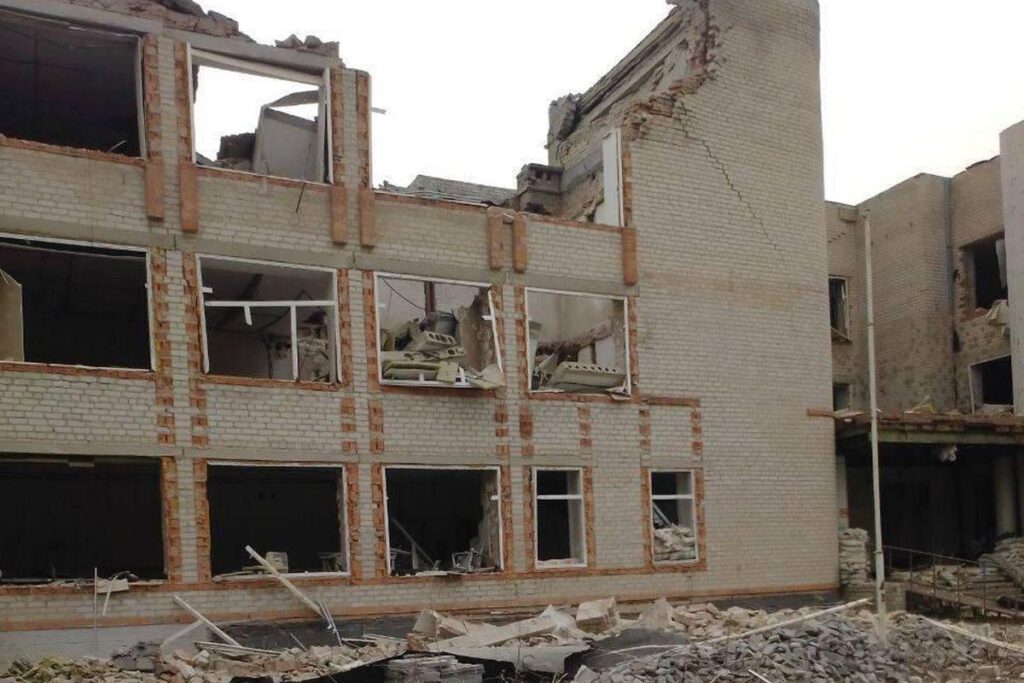
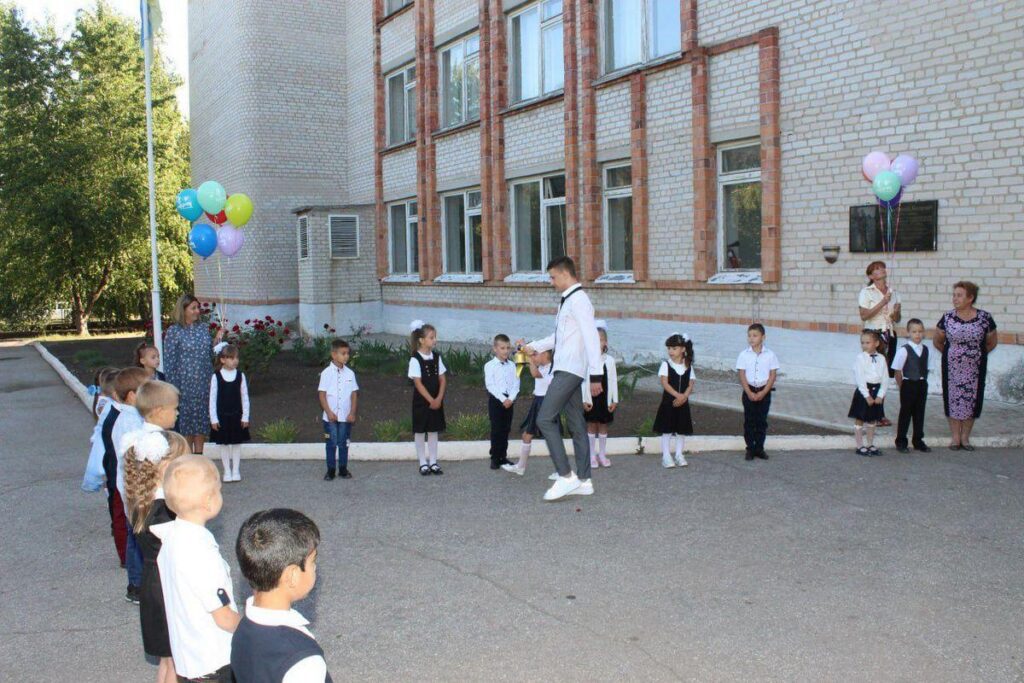
Against this backdrop, the editorial staff of Holos Huliaipillia continues to work. Five people – an editor, a journalist, a website administrator, a typesetter, and an accountant – have not received a single penny since September. Grant funding has stopped, and new applications submitted by Tetiana remain unanswered.
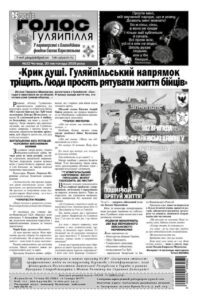 “We have written applications for four grants and are awaiting the results,” she says. “In September, October, November, and December, we have been working and will work without money. The editorial staff received a one-time grant of UAH 20,000, but the funds were immediately used to pay for the newspaper’s printing. There is no money left for November and December.”
“We have written applications for four grants and are awaiting the results,” she says. “In September, October, November, and December, we have been working and will work without money. The editorial staff received a one-time grant of UAH 20,000, but the funds were immediately used to pay for the newspaper’s printing. There is no money left for November and December.”
The newspaper is published twice a month, and each issue is eight pages of the author’s text. No reprints from the Internet. Materials about the fallen defenders, about those who are defending the Huliaipole district today, about the 102nd Territorial Brigade from Ivano-Frankivsk, with which the editorial staff maintains contact.
“Everyone has their own struggle,” says Tetiana Velyka. “I understand that mine is an informational one. Today I am conducting it with honor and dignity. Because tomorrow people may say: “Newsroom of Holos Huliaipillia, where have you been all these years of war, why have you been silent?”
Despite all the difficulties, the logistics of delivering the newspaper are working.
“Until recently, Ukrposhta delivered newspapers in Huliaipole,” says Tetiana Velyka.
She signed a contract with the postal service, and it skillfully fulfills its obligations. Holos Huliaipillia is the only local newspaper sold at Ukrposhta branches in the Zaporizhzhia Region. Next to crossword puzzles and glossy magazines is a small publication from a frontline city. People come to buy it and find out what is happening in Huliaipole, from where they were evacuated.
The publication’s electronic pages are also actively read: in three months, almost a million views on the Facebook page and website. This is the level of national media. But there is no financial support.
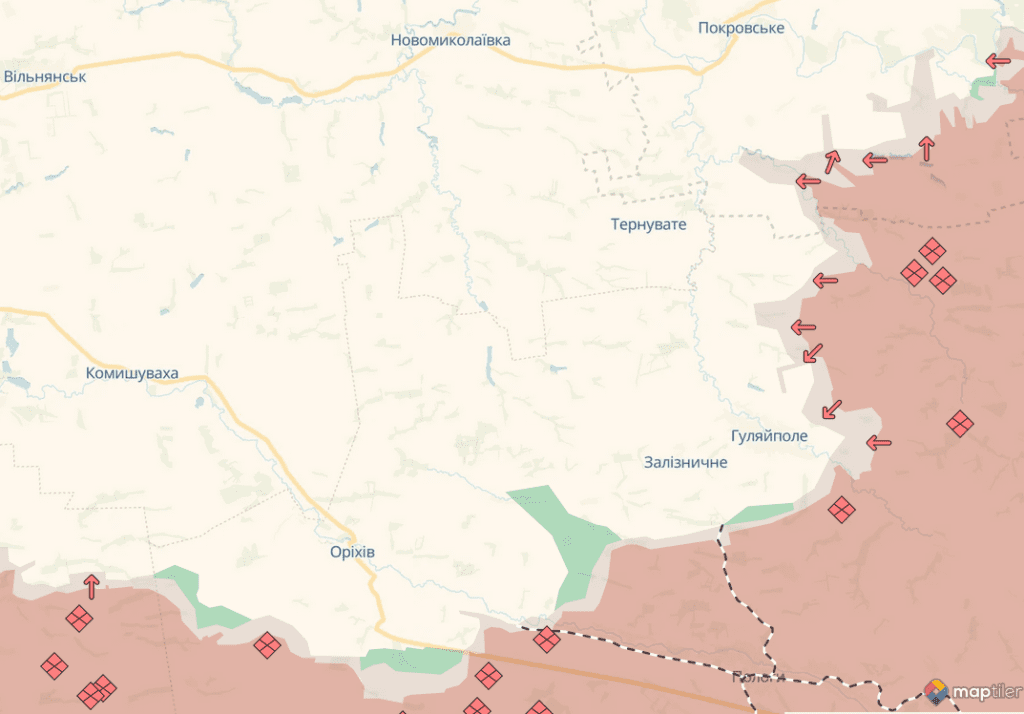
Neighbors in misfortune
Nearby, in the town of Orikhiv, just a few kilometers from the front line, they read the Trudova Slava newspaper. Its editor, Svitlana Karpenko, says that logistics are maintained for now. However, the aggravation affected the Preobrazhenka, Mala Tokmachka, and Orikhiv Communities.
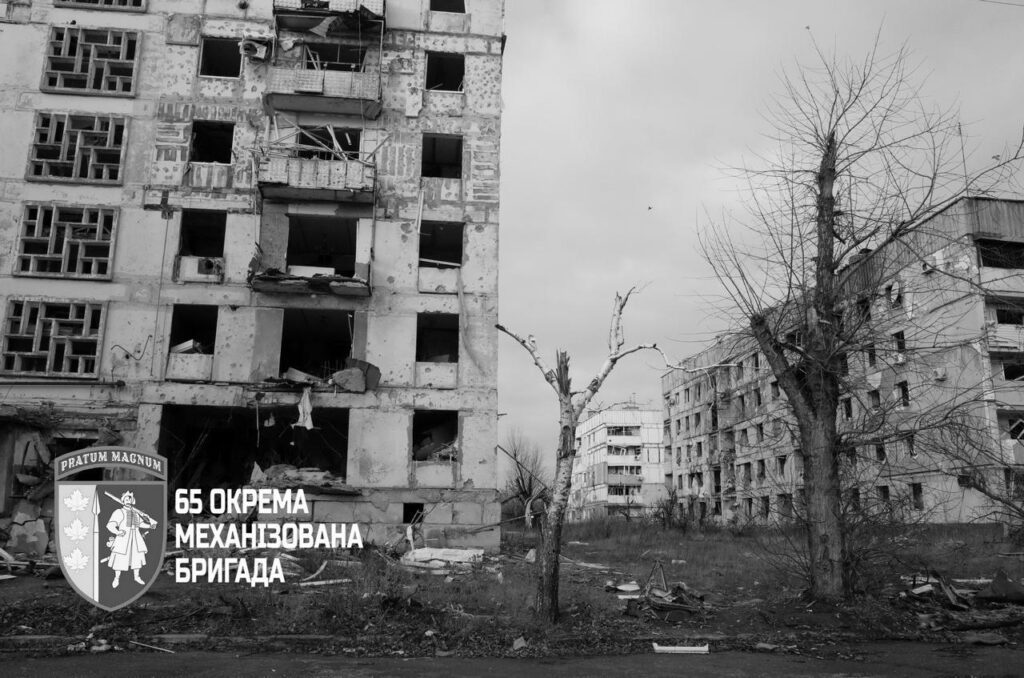
“As long as the authorities can get there, rescuers can get there, and volunteers can get there, they bring the newspaper with them,” explains Svitlana. “But everyone understands: if the situation worsens, the number of deliveries will decrease, as some people will seek shelter in safer regions of the country.”
While working in the destroyed Orekhov, a team of journalists found themselves under the sights of russian FPV drones. A few hours before their arrival, air bombs had hit the center, and drones were hunting in the streets, flying not from above, but literally above the ground.

Kateryna Zavarzina, the editor of the Nashe Zhyttia newspaper, works in neighboring Novomykolayivka. Her newsroom is in an even worse situation: three to four days without electricity, and the power line is broken. And there are no grants either.
“She and I are the only ones who have applied for a subscription,” says Tetiana Velyka. “We believe in the power of print media, that we will be reborn.”
Not all editors of frontline publications in Zaporizhzhia agreed to talk about their situation. Their silence is also an answer. Because what can you say when you work under constant shelling, when the state seems to have forgotten about the existence of frontline media, when your audience is decreasing every day due to evacuation and occupation?
These thoughts are mostly sad. People are in danger and also deprived of funds for work. Someone is thinking about closing their publication – not because they don’t want to work, but because they simply can’t. When there is no money for printing, when journalists don’t get paid, when every day could be the last for your city, the motivation to continue becomes a test of will.
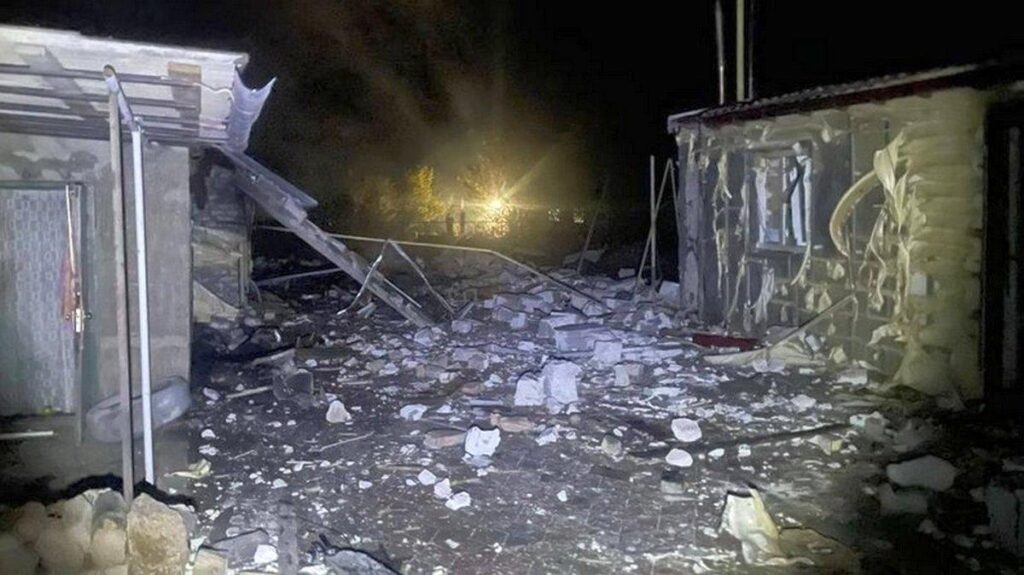
International solidarity
The NUJU is trying to change this situation. According to the President of the NUJU, Sergiy Tomilenko, the Union is constantly working with international donors to attract funding to support frontline media.
“Local newsrooms, especially in frontline areas, work in extremely difficult conditions, documenting both events from the life of communities and the criminal actions of attackers,” emphasizes Tomilenko. “Without state and international assistance programs, media outlets risk disappearing, and people risk being left without truthful and verified information in conditions of hostile propaganda.”
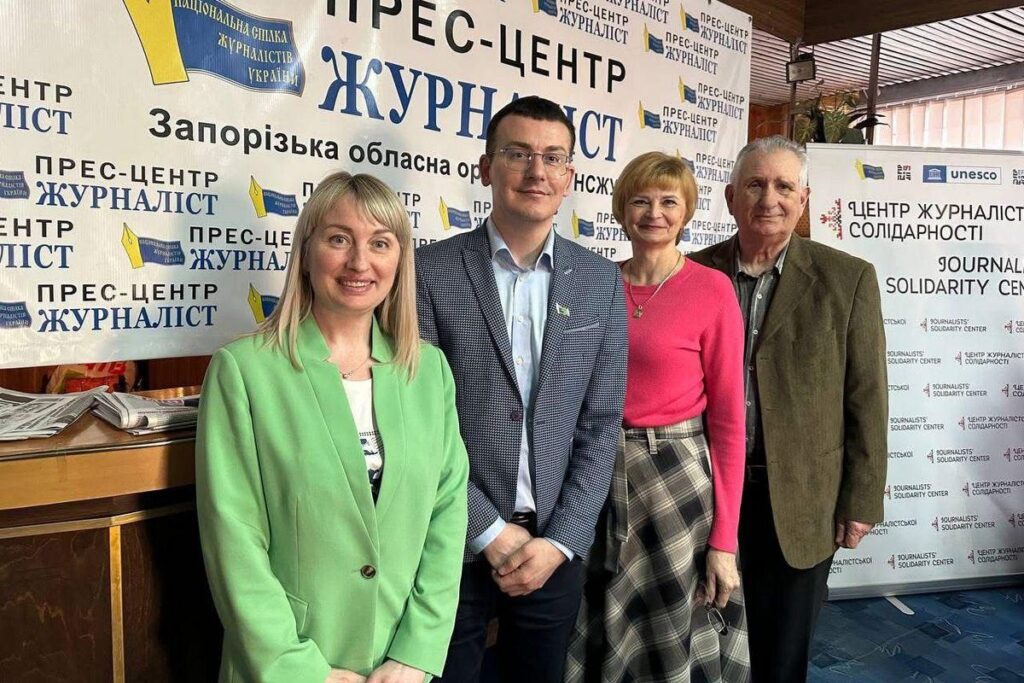
During his visit to Scandinavia, Sergiy Tomilenko managed to agree on support for frontline publications. Swedish partners agreed to finance the work of 25 frontline newspapers for six months. So there is hope that newsrooms such as Holos Huliaipillia, Trudova Slava, or Nashe Zhyttia will be able to help in this not just difficult, but critically difficult time. The Danish and Norwegian Unions of Journalists also ensured the Journalists’ Solidarity Centers (JSC) continued their work when UNESCO funding ended.
“When I visited Orikhiv, where people have been living in basements without electricity since April 2022, they told me that the local newspaper Trudova Slava became their only window to the world, their only source of information,” says Sergiy Tomilenko.
Together with international partners, the NUJU has already supported 32 newspapers in the Sumy, Donetsk, Dnipropetrovsk, Kherson, Chernihiv, and Kharkiv Regions that stopped publishing after the full-scale invasion.
“Our newspaper is as important as bread and air for us,” residents of frontline communities say. When there is no electricity and internet, when russian occupiers are purposefully destroying TV towers and communication infrastructure, the printed word remains the only link to the truth.
“As soon as we left Huliaipole in 2022, russian frequencies immediately started working there,” recalls Tetiana Velyka. “That is, if Ukrainian media disappear, russian propaganda takes their place. This should not be the case. We are fighting not only for the survival of newsrooms but also for Ukraine’s information security.

An NUJU study conducted in the spring of 2025 showed the scale of the crisis: 26% of Ukrainian regional media are operating without salaries, and almost a quarter of newsrooms will last only up to three months. Most local media operate on monthly budgets of up to UAH 100,000, which is barely enough to cover basic costs.
Tetiana Velyka says that she is holding on thanks to her family. Her husband, farmer Dmytro Korostelov, is waging his own, so to speak, agrarian struggle, trying to grow crops in the “gray zone” where shells and drones fly, while she is waging an information struggle. Her six-year-old daughter Stefania is growing up to the sounds of alarms and explosions. They rent a house near Zaporizhzhia because it’s become too dangerous in the city center.
Tetiana is not complaining. She understands that everyone is in this state today. But she asks for attention: there aren’t many frontline media outlets, and they need support. Not a lot of money – just the opportunity to continue working.
Meanwhile, FPV drones continue to harvest their “harvest” in Huliaipole. And Holos Huliaipillia continues to be published – without salaries, but with the belief that the information struggle must be fought to the end.
Maksym Stepanov
NUJU Information Service

 THE NATIONAL UNION OF
JOURNALISTS OF UKRAINE
THE NATIONAL UNION OF
JOURNALISTS OF UKRAINE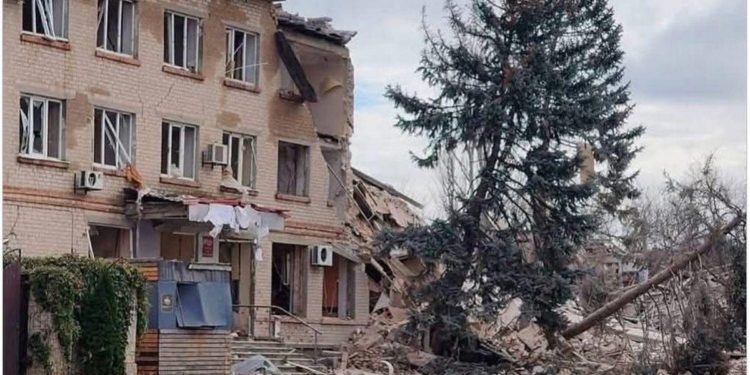

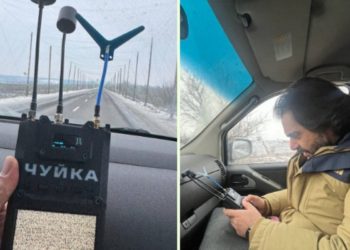














Discussion about this post